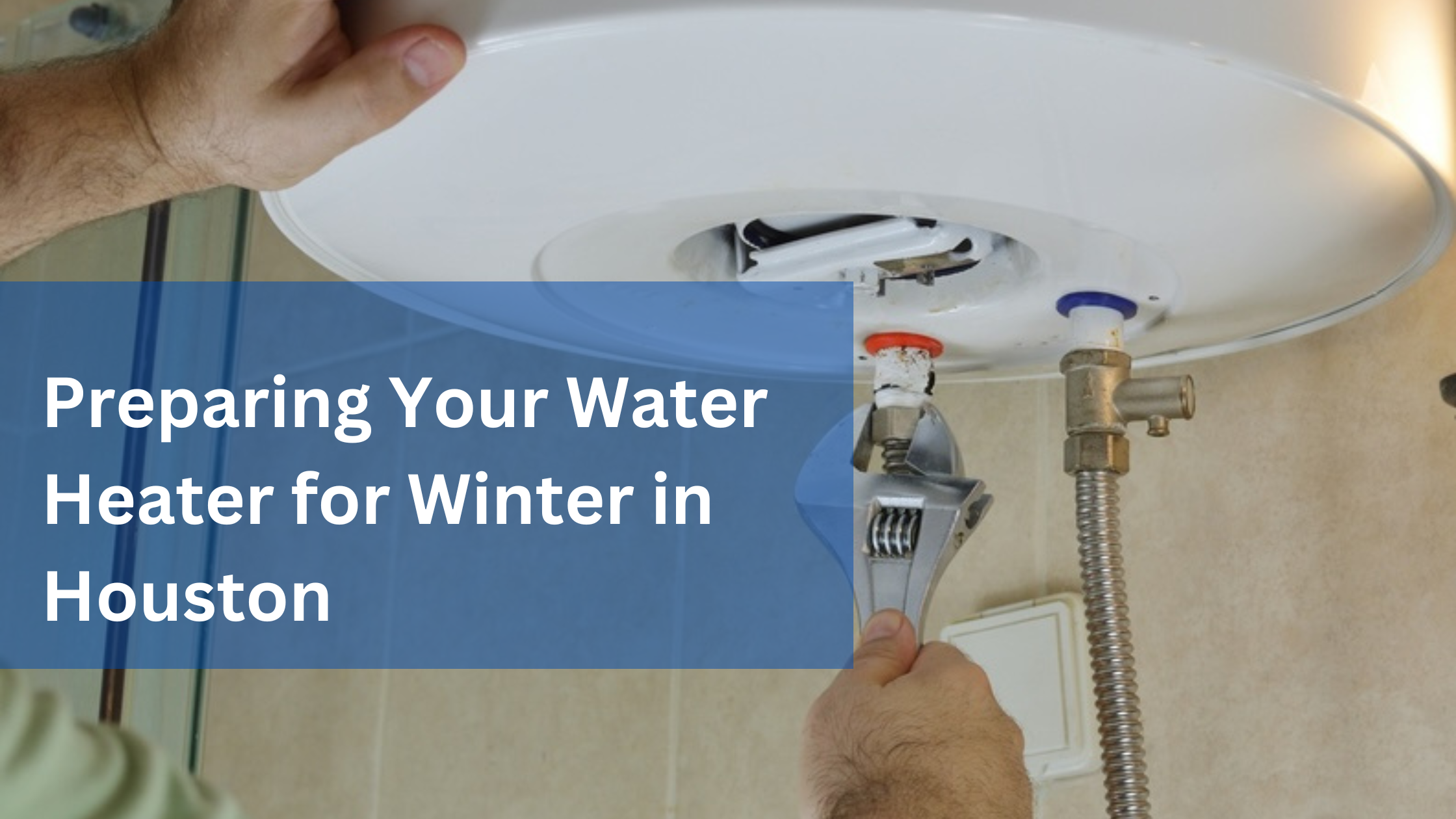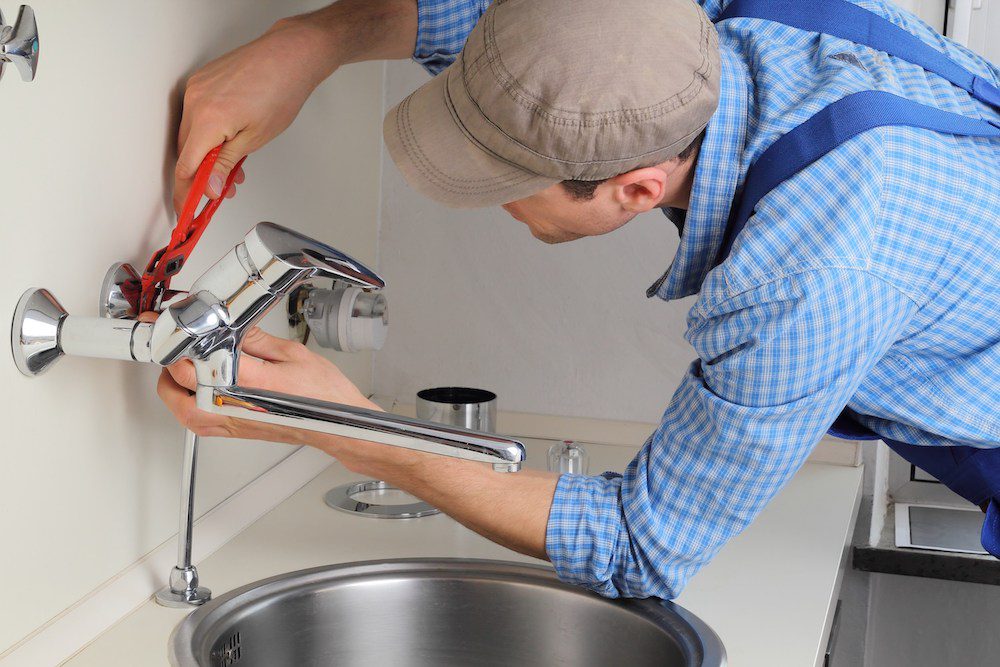As fall settles in upon us in Houston, this is the perfect opportunity to winterize your water heater so it is prepared to handle the demands of cooler weather. While Houston winters may not be as harsh as other regions, the cold temperature dip can still strain your water heater, especially if it hasn’t been adequately maintained. A well-functioning water heater is essential for keeping your home comfortable, from warm showers to hot water for cooking and cleaning. By taking a few key steps now, you can avoid unexpected breakdowns and costly repairs when you need your water heater the most.
Whether it’s water heater maintenance, repairs, or installation of a new system, Nick’s team of licensed professionals knows how to winterize your water heater to ensure it’s at peak performance before winter arrives. Let Nick’s Plumbing help you prepare your water heater for winter and enjoy peace of mind knowing you have expert support.
How Does Winter Weather Impact Your Water Heater?
Cold weather can significantly impact your water heater if it isn’t properly winterized. As the temperature drops, the water entering your heater is colder, requiring more energy and time to reach the desired temperature.
This added strain can lead to reduced efficiency, higher energy bills, and an increased likelihood of wear and tear on the system. In extreme cases, pipes leading to or from the water heater can freeze, causing blockages or ruptures. Regular maintenance ensures your water heater can handle the colder months efficiently and avoid potential issues.
What Are Some Common Winter Water Heater Issues?
Increased Energy Consumption
During the winter, your water heater has to work harder to heat the colder incoming water, leading to higher energy usage. This can strain older or under-maintained systems, causing them to run inefficiently. Homeowners often notice an increase in their energy bills as a result. Opting to winterize your water heater can relieve some of this strain, allowing it to operate more efficiently and potentially reducing energy costs. Regular maintenance and adjustments, such as insulating pipes or flushing the tank, can help your system handle colder water with less effort.
Insufficient Hot Water Supply
Colder temperatures can reduce your water heater’s capacity to produce enough hot water for your household. If your heater isn’t large enough or is struggling with sediment buildup, you may run out of hot water more quickly. This is especially noticeable during high-demand times, like holiday gatherings.
Frozen Pipes
When temperatures drop, the pipes that supply water to and from your heater can freeze, mainly if they are not well-insulated. Frozen pipes can block water flow and, in severe cases, cause pipes to burst, leading to extensive water damage and potential repairs.
Water Heater Leaks
Cold weather can cause metal components within your water heater to contract, which may lead to cracks or leaks in the tank. Leaks can result in reduced efficiency, higher water bills, and, if left unchecked, potential water damage in your home.
Slow Recovery Time
In winter, the water heater takes longer to recover between uses because the incoming water is colder and requires more energy to heat. This can lead to longer wait times for hot water and increased wear on the system as it works harder to meet demand. A visit from Nick’s to winterize your water heater can shorten wait times for hot water, increase efficiency, and provide peace of mind for your family.
Which Water Heater Is Best for the Winter Months, Tank-Type or Tankless?
When choosing between a tank-type or tankless water heater for the winter season, both options have advantages, depending on your home’s needs.
A tank-type water heater stores a lot of hot water and is ready for immediate use. This can be beneficial during colder months when demand for hot water tends to increase, especially in larger households. The tank continuously maintains the water temperature, so you don’t have to wait long for hot water when the temperature drops. However, tank-type systems can be less energy efficient in the winter, as they use energy to keep the water hot even when it’s not in use, which could result in higher utility bills.
On the other hand, a tankless water heater heats water on demand, providing a continuous supply of hot water without needing storage. This means you always have hot water, which is especially useful during winter when multiple showers, laundry, and dishwashing might occur in quick succession. Tankless systems are typically more energy-efficient since they only heat water as needed, reducing standby energy loss that tank-type heaters experience. However, in very cold weather, the incoming water is much colder, and tankless systems might struggle to heat water quickly enough if the unit is undersized for your home’s needs.
For smaller homes or those focused on energy efficiency, a tankless system might be the better option for long-term savings. Consulting with a professional like Nick’s Plumbing can help you assess your home’s needs and determine the best solution to keep your water heater running smoothly all winter.
How Cold Does it Have to Get to Freeze My Water Heater?
Water heaters are typically indoors or in insulated areas, so they are less likely to freeze. However, the pipes leading to and from the water heater are at higher risk. Water begins to freeze at 32°F, and if the temperature in the area where your water heater is located drops below this point, the pipes could freeze, especially if they are uninsulated or exposed to the elements. Insulating pipes and keeping the space around your water heater warm can help prevent freezing issues even in colder weather.
Why Should I Call a Professional Plumbing Company for My Winter Water Heater Needs?
Calling a professional plumbing company for your winter water heater needs ensures that your system is properly maintained and ready to handle the increased demands of the colder months. A professional can identify potential issues like sediment buildup, leaks, or faulty components that could lead to inefficiency or system failure when you need hot water.
Additionally, licensed plumbers have the expertise to recommend and implement the best solutions for your specific water heater, whether routine maintenance, repairs or an upgrade. With professionals like Nick’s Plumbing, you can trust that your water heater will operate efficiently and reliably throughout the winter season.
What Are the Benefits of Winter Water Heater Preparation?
Professional water heater maintenance offers several key benefits, including improved efficiency, extended system lifespan, and the prevention of costly repairs. Regular maintenance by a licensed plumber helps remove sediment buildup, check for potential leaks, and ensure all components function correctly. This allows your water heater to operate more efficiently—saving you money on energy bills—and reduces the chances of unexpected breakdowns, giving you peace of mind and reliable access to hot water year-round.
Nick’s Smart VIP Monitoring offers advanced protection by continuously monitoring your water heater for leaks. With real-time sensors installed in the drain pan of the water heater, the Smart VIP Monitoring system can detect even the most minor leaks before they become significant problems. If a leak is detected, the system will send an immediate alert to your phone, allowing you to take action quickly and avoid potential water damage or costly repairs. This proactive monitoring gives homeowners peace of mind, knowing that their water heater is being watched around the clock by cutting-edge technology and the experts at Nick’s Plumbing.
Why Should I Call Nick’s for My Winter Water Maintenance?
Calling Nick’s for your winter water heater preparation ensures that your system is ready to handle the colder months efficiently and reliably. Our team of fully trained and licensed professionals has the expertise to inspect, clean, and optimize your water heater, addressing potential issues like sediment buildup or worn-out components that could lead to inefficiency or breakdowns. Just take a look at what our Winter Water Heater Preparation includes:
- Inspection of Gas and Electrical Connections: All connections to gas and electrical services are inspected to ensure safe and proper operation and prevent potential hazards.
- Storage Tank Leak and Corrosion Check (Tank-type only): The storage tank is checked for any signs of leaks or corrosion that could affect performance or lead to costly repairs in the future.
- Water Supply Shut-off Valve and Vent Piping Check: The water supply shut-off valve and vent piping are thoroughly inspected to confirm their proper operation and ensure system safety.
- Temperature and Pressure Valve Inspection: The temperature and pressure relief valve is tested to ensure it’s working as a critical safety feature, preventing pressure buildup inside the unit.
- Anode Rod Inspection (Tank-type only): The anode rod is examined for wear, helping prevent rust and corrosion inside the tank, which could compromise the water heater’s longevity.
- Drain Pan Clearing: The drain pan is checked and cleared of blockages, ensuring leaks or overflows are safely managed.
- Water Heater Flushing (Tank-type only): Your water heater is drained and flushed to remove accumulated sediment, which can reduce efficiency and increase wear on the water heater.
- Heating Element and Coil Cleaning (Tankless only): For tankless water heaters, the heating elements and coils are cleaned to remove scale buildup, ensuring efficient heating and longer component life.
- Standard Tankless Maintenance: In addition to coil cleaning, the flow sensors, filters, and venting system are inspected and cleaned, ensuring the tankless unit operates efficiently and reliably during the winter.
This comprehensive service ensures that tank-type and tankless water heaters are prepared for winter, enhancing safety, efficiency, and system performance.
Nick’s Plumbing is Waiting for Your Winter Water Heater Preparation Booking!
Don’t wait until winter arrives to ensure your water heater is ready for the colder months ahead—call Nick’s Plumbing today for expert winter water heater preparation. Our licensed professionals will perform a thorough inspection and maintenance to keep your system running efficiently all season.
In Houston, Nick’s Plumbing is your trusted choice for all your water heater and plumbing needs.
Schedule an appointment with Nick’s now. Enjoy peace of mind knowing your water heater will perform to some of this strain, allowing it to operate more efficiently and potentially reduce energy costs. Regular maintenance and adjustments, such as insulating pipes or flushing the tank, can help your system handle colder water with less effort.
Call Nick’s Today, We’re on the Way!


























